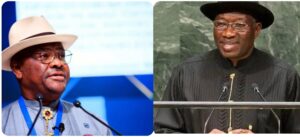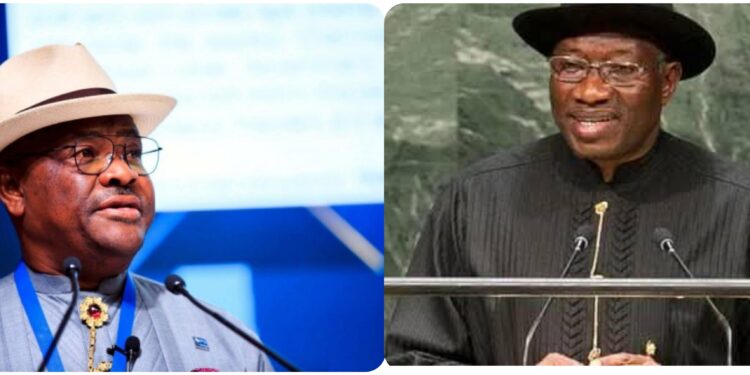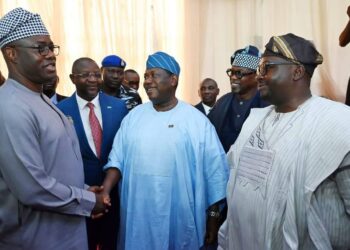Wike cautions ex-president: Betrayers of 2015 plotting fresh comeback

By Ibrahim Kegbegbe
When Federal Capital Territory (FCT) Minister, Nyesom Wike, cautioned former President Goodluck Jonathan against running in the 2027 presidential election, his words carried more than the weight of political speculation — they echoed the voice of reason rooted in history. Days later, Jonathan himself seemed to confirm Wike’s fears, admitting publicly that he had been betrayed by many politicians during the 2015 election.
Speaking during a media chat in Abuja on Monday, September 1, Wike expressed deep concern about the renewed whispers of Jonathan’s possible return to the ballot. He argued that those urging Jonathan to recontest were the very politicians who worked against him a decade ago.
“People pushing Jonathan, what strength do they have? Were they not the same people who worked against him in 2015?” Wike asked rhetorically.
The minister was clear in his advice: Jonathan, who has earned global respect as a statesman, should continue to enjoy that recognition without exposing himself to the harsh realities of Nigeria’s cutthroat politics once again.
Just three days later, Jonathan lent credence to Wike’s warning while speaking in Benin City at the 70th birthday celebration of Chief Mike Aiyegbeni Oghiadomhe, a former deputy governor of Edo State. With disarming frankness, Jonathan admitted the bitter truth about Nigerian politics.
“Politics in the Nigerian standard is about betrayals,” Jonathan said. “I have witnessed a lot of betrayal during the 2015 election. You will find it difficult to see somebody who says the same thing in the morning, in the afternoon and in the evening.”
This rare convergence of voices — a former president reflecting on his scars and a sitting minister sounding the alarm — highlights a sobering reality: the Nigerian political landscape is as treacherous as ever, and memory is short in the corridors of power.
READ ALSO:Generation Begging: When Politics Becomes Youths’ Career Choice
The calls for Jonathan’s return in 2027 are not born of loyalty or genuine conviction but of opportunism. For those who abandoned him in 2015, rallying around his name now is less about redemption and more about political expediency. It is precisely this cycle of manipulation and betrayal that both Wike and Jonathan warn against.
Nigeria, at this critical juncture, requires healing from division and bold reforms to tackle economic hardship, insecurity, and a trust deficit in governance. What the country does not need is another recycling of wounded leaders into a political arena dominated by intrigue and disloyalty.
READ ALSO:Lagos Raises Alarm Over Looming Environmental Collapse of Lagos Lagoon
Jonathan’s enduring legacy — his decision to concede defeat peacefully in 2015, thereby deepening Nigeria’s democratic culture — is one that should not be put at risk by another bruising presidential contest. As Wike rightly put it, the former president has “earned the respect of the international community as a statesman,” and that status is worth more than another futile political gamble.
READ ALSO:Who Was Prophet Muhammad? Beyond the Holiday, A Life That Shaped Civilizations
The lesson is simple: Nigeria must look forward, not backward. And Jonathan, by listening to Wike’s candid advice and reflecting on his own painful experience, would do well to guard his hard-won legacy from those who once betrayed him but now seek to use him again.















